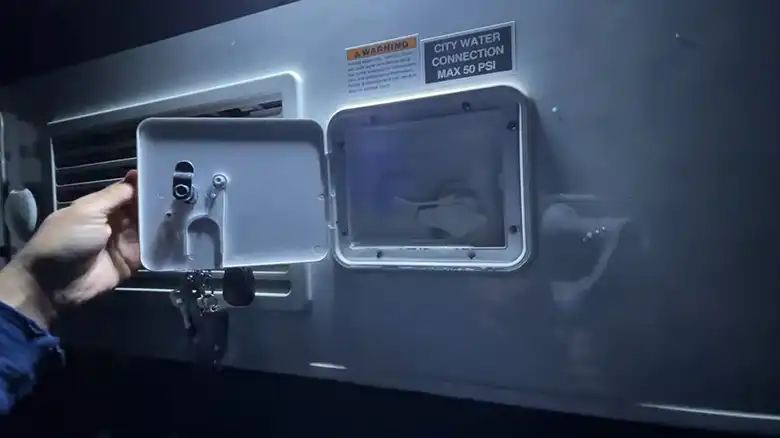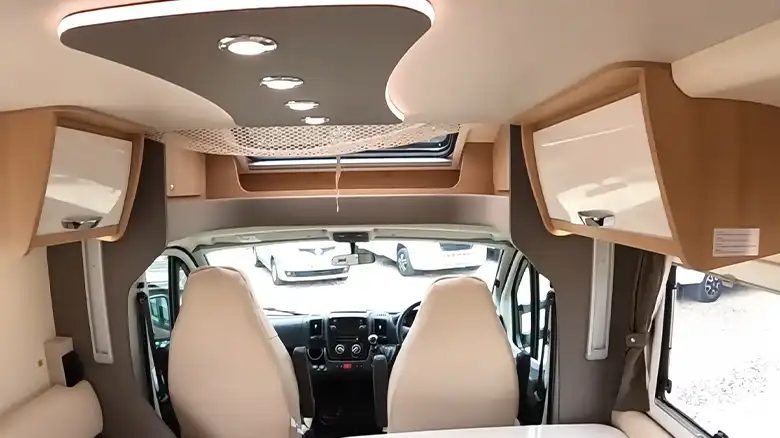So, you’re gearing up for another adventure in your RV, and you’re doing a routine check. You discover your battery is kaput, and a thought pops up, “Can my RV’s converter still work without it?”
In short, the answer is yes, an RV converter can function without a battery. However, the battery serves as a buffer and stabilizer, ensuring a steady power supply and protecting the system.
Curious about the details? Fear not, traveler, for you’re about to get schooled in the ins and outs of RV power. Park up, kick back, and let’s explore!

Can an RV Converter Operate Without a Battery?
Yes, in most scenarios, an RV converter can indeed operate without the presence of a battery. However, to truly understand the dynamics, it’s vital to learn the relationship between these two components:
1. Converter Functionality: Its main job is to convert power to provide a 12-volt DC power source for your RV’s appliances and simultaneously charge the onboard battery. So, when you hook your RV to an external power source like shore power or when you start up a generator, the converter gets to work.
2. Battery’s Role: Think of the battery as the storage house for power. It retains a stockpile of 12-volt DC power, ready to be used on demand, especially when external power sources aren’t in play.
While the battery in an RV does store power, it’s not its only function. The battery:
- Acts as a Buffer: It absorbs the electrical loads and spikes, which can be frequent when appliances turn on or off.
- Provides Steady Power: RV appliances, especially sensitive ones, appreciate consistent power, which a battery can ensure.
- Backup Source: In the absence of shore power or when you don’t want to run a generator, the battery jumps into action, supplying the necessary power.
3. Working Together: While a converter does its job efficiently even without a battery, the battery offers a consistent and reliable power flow. It’s like a backup singer ensuring the tune doesn’t miss a beat even if the lead has a hiccup.
Risks of Running an RV Converter Without a Battery
When the battery is absent or disconnected:
- Risk of Voltage Spikes: Without a battery to act as a buffer, there’s a higher risk of voltage spikes harming the electrical appliances or the converter itself.
- Unstable Power: The DC power might not be as steady as when a battery is in the system. Some sensitive electronics may not function optimally or could even be damaged.
- Limited Operation: Should there be any interruption in the shore power, your RV will lose power instantly, as there’s no battery backup.
When is It Okay to Use an RV Converter Without a Battery?
There are various situations where an RV might function without a battery:
- Maintenance or Replacement: Sometimes the battery might be out for a bit of TLC or an upgrade. During such intervals, the converter keeps the RV powered up.
- Dry Camping: If you’re running on a generator or tapping into shore power and don’t need the 12-volt system, the battery might not be in the picture.
- Emergency Power: Should your battery give up on you suddenly, the converter can step up, ensuring your RV remains powered until you sort out the battery situation.
- New Age RVs: Modern RVs, with evolving technologies, sometimes skip the battery, relying wholly on shore or generator power.
Things to Keep in Mind When Using a Converter Without a Battery
While technically feasible, using a converter sans battery does come with its set of considerations:
- Voltage Stability: Without the battery’s stabilizing influence, there might be notable power fluctuations. It’s wise to invest in surge protectors and voltage regulators.
- Monitor Voltage: Using a voltage monitoring system can alert you to any dangerous spikes or drops.
- Appliance Compatibility: Some of the sophisticated gadgets in your RV might have a preference for consistent power, which a battery ensures.
- Limit Appliance Use: Try not to run multiple appliances at once. This can help reduce the strain on the converter.
- Converter Efficiency: If you’re going the no-battery route, ensure your converter is top-notch to handle power variations.
NOTE: A battery is your best friend during unexpected power outages. No battery means no backup. If you’re without a battery for an extended period, consider getting a replacement or a temporary one to ensure system stability.
Final Thoughts
Your RV’s converter will indeed work without a battery, but it’s like hiking with one shoe; you can do it, but it’s not optimal. The battery plays a crucial role in maintaining the health of your RV’s electrical system and ensuring everything runs smoothly.
Frequently Asked Questions
Why Does My RV Converter Make a Humming Noise Without a Battery?
The humming or buzzing sound you’re hearing could be due to the transformer inside the converter. Without the battery acting as a buffer, some converters might produce a more noticeable hum.
Can Extended Use Without a Battery Damage My Converter?
While converters can operate without a battery for short durations, running it this way long-term might cause wear and potentially reduce its lifespan. The battery often acts as a buffer, preventing power surges from affecting the converter.
Can I Use RV Appliances While Replacing the Battery with Only the Converter?
Yes, in most cases, the converter will provide the necessary 12-volt DC power to your RV’s appliances. However, it’s always a good idea to check your specific RV model’s guidelines.
How Can I Tell if My Converter is Working Properly?
If your RV’s 12-volt appliances work when connected to shore power but not on battery, the converter might be the issue. Additionally, if the battery isn’t charging while connected to an external power source, the converter could be at fault.
What Are the Signs of a Failing Converter?
Signs might include dimming lights, appliances not running efficiently, the battery not charging, or unusual sounds from the converter.
How Often Should I Inspect or Replace My RV Battery for Optimal Converter Performance?
It’s a good practice to inspect your battery at least twice a year. On average, deep-cycle RV batteries last 3-5 years, but their lifespan can vary based on usage and maintenance.


